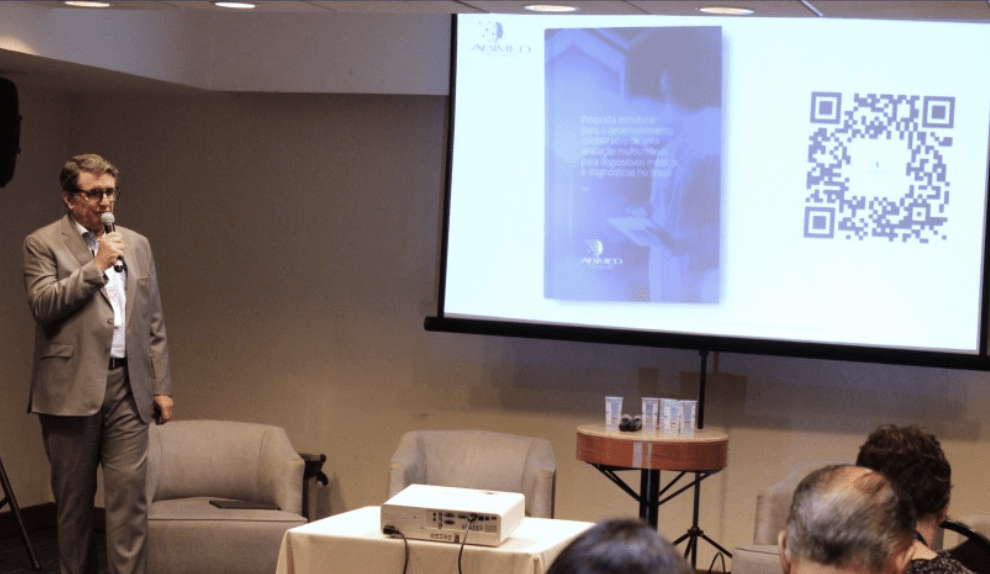ABIMED and ANS hold workshop to qualify the HTA process in supplementary healthcare

Publicado em 23/10/2023 • News • English
On September 26th and 27th, the 1st Workshop for Qualification of the HTA Process and Incorporation of Medical Procedures and Devices in Supplementary Health, held by ABIMED and the National Agency for Supplementary Health (ANS), took place in São Paulo. The event discussed Health Technology Assessment (HTA) cases and processes, focusing on the difficulties encountered in funding and approving various procedures, whether due to the lack of data from clinical studies or the bureaucracy faced by the National Commission for the Incorporation of Technologies into the Unified Health System (Conitec) and the Permanent Committee for Health Care Regulation (Cosaúde).
Among the speakers were Carlos Rezende, coordinator of Health Technology Management at ANS; Vanessa Teich, director of Health Economics at Albert Einstein Hospital; Alexandre Fioranelli, director of DIPRO/ANS and Fernando Silveira Filho, executive president of ABIMED.
Over the course of 10 months, the ANS evaluated around 36,000 scientific articles, which revealed problems in the following areas: crisis of scientific evidence, in which it is necessary to understand what the evidence presented means for the definition of a technological horizon; crisis of costs and waste for the development and implementation of new technologies; and a crisis of inclusion of professionals, given the need to update doctors so that they can use new procedures.
A unanimous theme among the participants was the need for a holistic view of the stages, in order to identify the best treatment for each patient. However, the consensus comes up against bureaucracy. According to Fioranelli, from DIPRO/ANS, the country has 700 health operators and around 100,000 employees who don’t talk to each other. “Without bringing everyone together and achieving alignment, we’ll never get to the point of discussing ‘value’. Today we can’t even map supplementary health coverage. SUS provides the patient’s International Classification of Diseases, but for us it is necessary to request this information from the Federal Supreme Court in order to receive it from the operators. It’s complicated to generate data, which makes implementation evaluations difficult,” he explained.
In terms of generating information, one of the points defended in the debate was the use of other methodologies in addition to randomized clinical trials. One example is multi-criteria analysis, which makes it possible to understand what happens at every stage of the process, from the ANS to the patient. Another example is real-life data, promoting a more qualified HTA process, covering evidence, infrastructure, risk and total cost.

 Portuguese
Portuguese
 Spanish
Spanish
 English
English






















